
|
|
|
|
Archived News Genuine OE Fuel Pumps and Modules, is there a real difference?
As technology has evolved complexity has been further enhanced by fuel delivery modules which are an assembly that includes an electric fuel pump, sound isolation units, all the mounting gear (flange, wiring harness), and a fuel level sensor, pressure regulator and fuel run out device. Often these systems will also be designed for contained recirculation of the fuel. It is sometimes difficult for technicians to identify a potential problem in a fuel pump because of this increasing complexity. Often due to a lack of training, repair technicians are unable to identify core problems in fuel delivery systems and manufacturers face an uphill task in educating technicians about the diagnosis, testing and replacement of fuel pumps and fuel delivery modules. An anticipated increase in demand for complex fuel delivery modules is expected to magnify this problem further into the future. So what is OE, what is the difference?
Manufacturers of OE products produce exact replacement products, designed and manufactured to the specifications of the vehicle manufacturer. They have the advantage of leveraging the engineering expertise of vehicle manufacturers, which enables them to design sophisticated products manufactured with improved technologies. Manufacturers of vehicles have stringent specifications and quality assurance programs, where quality and performance are vigorously tested. The quality control and testing departments of these large vehicle manufacturers are responsible for making sure the parts on the vehicles they produce, and those available as replacement parts, are high quality components. The OE part should work exactly as the one it’s replacing. It is what the vehicle was manufactured with and provides a peace of mind in its familiarity and performance. Aftermarket manufactured parts are just the opposite of OE parts. These parts are produced by companies other than the original manufacturer. Many of these manufacturers will claim they have the equivalent, or even improved the products, but the truth is they are generally made using lower grade materials, or have used other cost saving measures, with the result being a lower quality part. Although some form of testing is often claimed by non OE aftermarket suppliers, it is the independence and integrity of such testing claims that must be substantiated to assure product equality. In most cases the benefit of the lower price is far outweighed by its major disadvantage - it's often an inferior product, which means they suffer in terms of fit, accuracy, robustness and durability, and end up costing much more in the end in avoidable repairs. There has been much talk in the aftermarket recently regarding the non original aftermarket equipment versus the Original Equipment (OE) product. Why should you care? Quality parts, that's why. All aftermarket parts are not created equal, but all OEM parts are! What does it mean to the industry?
The Marketing Executive Council (MEC) of the North American AASA (Automotive Aftermarket Suppliers Association) has issued in the second of two Special Reports "Independent Aftermarket Image: Quality Does Matter”. (www.aftermarketsuppliers.org). This report attempts to highlight these problems and raise an industry wide call to action to stem this tide before irreparable damage is done to the entire reputation of the automotive aftermarket. One of the significant factors to come from the MEC report was that the survey focus groups agreed that it does not matter where a product is made, what is important is who stands behind it. Some manufacturers supply products that they claim offer the functionality, quality and performance of the OEM product, but without the support and peace of mind the leading global developers and manufacturers such as Delphi, Bosch, Pierburg, VDO and Denso can offer, is it worth the risk? It has been stated that the testing equipment and setup for just one production line for OE fuel pumps can cost upwards of US$2 Million. One of the World’s largest auto components suppliers and fuel pump manufacturers, Delphi,has a long history of manufacturing OE fuel senders and modules for global markets, and has manufacturing facilities throughout the world, with developments in all regions. Over 100 million fuel modules have been produced by Delphi since 1982.
Each one of DENSO’s worldwide facilities are ISO/TS16949 certified which assists in maintaining its enviable reputation for zero defects for parts produced per million. DENSO components are built to meet the stringent requirements of carmakers throughout the world for high output, extended reliability and reduced noise. That is why they are specified by most major vehicle manufacturers and are a leading supplier of fuel pumps. Other OE fuel pump manufactures, like Pierburg TI, have decades of experience in producing, developing and testing fuel pumps and fuel pump modules. In its role as first-tier supplier, Pierburg has traditionally been one of the closest partners to the automotive industry. Pierburg was founded in 1909 and very soon graduated into sole supplier to all German automakers and many international motor vehicle producers and engine manufacturers. Pierburg’s OE customers include vehicle manufacturers such as BMW, Opel, Ford, Citroen, Volvo, Audi, Scania, and Peugeot What are the implications to the mechanical workshop?
When it comes to OE fuel pumps and modules the workshop and end user can be confident that comebacks won’t be a problem, and expect a product that is:
|
Archived News
Understanding EGR Systems (Pt 1) |
| privacy statement terms of use terms and conditions sitemap news |  |

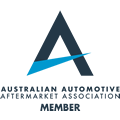


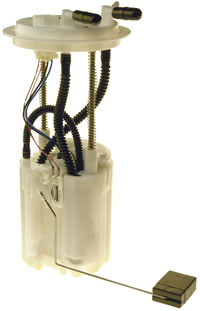 Technical progress and continuous development in engine technology has left their marks in fuel supply systems in recent decades, the traditional fuel pump has now become a high performance product. Whether in carburettor or fuel injection engines, diesel or petrol engines, the fuel must be reliably conveyed from the tank. In the past mechanically driven fuel pumps were used, as a result of increasing demands on the flow rate and system pressure, mechanical fuel pumps were soon replaced by electric fuel pumps.
Technical progress and continuous development in engine technology has left their marks in fuel supply systems in recent decades, the traditional fuel pump has now become a high performance product. Whether in carburettor or fuel injection engines, diesel or petrol engines, the fuel must be reliably conveyed from the tank. In the past mechanically driven fuel pumps were used, as a result of increasing demands on the flow rate and system pressure, mechanical fuel pumps were soon replaced by electric fuel pumps.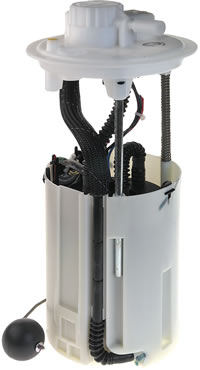 Original Equipment refers to a part that is made by the same manufacturer as the genuine part (Original Equipment Manufacturer – OEM); it’s the part you would receive from the local automotive dealer. Most vehicle manufacturers do not produce all the parts they use to build their vehicles, most use specialised outside companies to help them design the parts used in most vehicles they make, taking care that the part is designed properly, that it is made of quality materials, and that it does the job it is supposed to do.
Original Equipment refers to a part that is made by the same manufacturer as the genuine part (Original Equipment Manufacturer – OEM); it’s the part you would receive from the local automotive dealer. Most vehicle manufacturers do not produce all the parts they use to build their vehicles, most use specialised outside companies to help them design the parts used in most vehicles they make, taking care that the part is designed properly, that it is made of quality materials, and that it does the job it is supposed to do.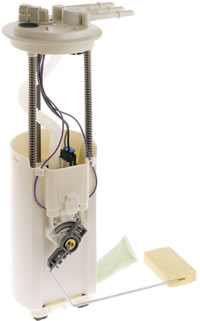 A growing trend has developed in recent years, the proliferation of lower cost, often lower performing aftermarket parts, in an attempt to offer more competitive pricing and improved profit margins. However many problems have surfaced with this practice of lower cost lower quality, at all levels within the supply chain.
A growing trend has developed in recent years, the proliferation of lower cost, often lower performing aftermarket parts, in an attempt to offer more competitive pricing and improved profit margins. However many problems have surfaced with this practice of lower cost lower quality, at all levels within the supply chain.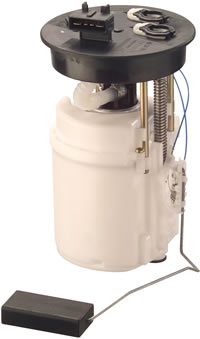 DENSO, a leading supplier of advanced automotive technology, systems and components for the world's major automakers states on their website “there is no room for compromise when it comes to the quality of our products.” Every component that leaves their facilities has been designed with precision, manufactured to OE standards and subjected to rigorous safety and performance tests.
DENSO, a leading supplier of advanced automotive technology, systems and components for the world's major automakers states on their website “there is no room for compromise when it comes to the quality of our products.” Every component that leaves their facilities has been designed with precision, manufactured to OE standards and subjected to rigorous safety and performance tests.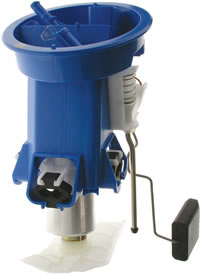 The MEC details in its report the issues mechanical workshop and even the consumer that considers installing low-cost, low-quality parts, must consider. According to the MEC they can include:
The MEC details in its report the issues mechanical workshop and even the consumer that considers installing low-cost, low-quality parts, must consider. According to the MEC they can include: